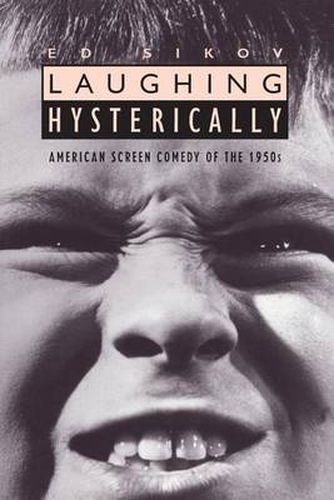Readings Newsletter
Become a Readings Member to make your shopping experience even easier.
Sign in or sign up for free!
You’re not far away from qualifying for FREE standard shipping within Australia
You’ve qualified for FREE standard shipping within Australia
The cart is loading…






With the likes of Billy Wilder, Howard Hawks, Alfred Hitchcock, and Frank Tashlin revelling in monkeys, babies, beautiful blondes, money, and cruelty in their signature films of the 1950s, this seemingly conformist period turns out to be one of the most dynamic and original eras in Hollywood history. What distinguishes these directors is their candid and amusing exploration of cultural anxieties in carnival form. Quirky yet complex films such as Monkey Business, Gentlemen Prefer Blondes, Sunset Boulevard, The Trouble with Harry, and Will Success Spoil Rock Hunter? released and expressed the sexual repression and frustration we commonly associate with the decade. In clear and elegant prose, Sikov argues that these comedies are examples of popular cinema’s uncanny capacity for cultural criticism. Highlighting Hawks’s skewed classicism,
Wilder’s gallows humor,
Hitchcock’s subversive morbidity,
and Tashlin’s shrill CinemaScopic fragmentation, the author discusses the raucous rebelliousness of the films these directors made in an era of widespread conservatism. Through satire and caricature, their films focus on the general anxiety - particularly over homosexuality, female sexuality, rock and roll, and Communism - that lay below the surface of homogeneity, progress, and domesticity in the period. Illustrated with over forty film stills, Laughing Hysterically captures the clout and glamour of such ‘50s icons as Marilyn Monroe, Jayne Mansfield, William Holden, and Jerry Lewis by insightful analysis of their influence on and expression of a burgeoning culture of consumption in the movies. The 1950s produced comedies that looked and sounded like nothing had ever looked and sounded before. Laughing Hysterically delights readers with an exploration of this very special group of films, and in the process, accomplishes what all good criticism should do: it makes the reader want to see the movies again from a fresh perspective.
$9.00 standard shipping within Australia
FREE standard shipping within Australia for orders over $100.00
Express & International shipping calculated at checkout
Stock availability can be subject to change without notice. We recommend calling the shop or contacting our online team to check availability of low stock items. Please see our Shopping Online page for more details.
With the likes of Billy Wilder, Howard Hawks, Alfred Hitchcock, and Frank Tashlin revelling in monkeys, babies, beautiful blondes, money, and cruelty in their signature films of the 1950s, this seemingly conformist period turns out to be one of the most dynamic and original eras in Hollywood history. What distinguishes these directors is their candid and amusing exploration of cultural anxieties in carnival form. Quirky yet complex films such as Monkey Business, Gentlemen Prefer Blondes, Sunset Boulevard, The Trouble with Harry, and Will Success Spoil Rock Hunter? released and expressed the sexual repression and frustration we commonly associate with the decade. In clear and elegant prose, Sikov argues that these comedies are examples of popular cinema’s uncanny capacity for cultural criticism. Highlighting Hawks’s skewed classicism,
Wilder’s gallows humor,
Hitchcock’s subversive morbidity,
and Tashlin’s shrill CinemaScopic fragmentation, the author discusses the raucous rebelliousness of the films these directors made in an era of widespread conservatism. Through satire and caricature, their films focus on the general anxiety - particularly over homosexuality, female sexuality, rock and roll, and Communism - that lay below the surface of homogeneity, progress, and domesticity in the period. Illustrated with over forty film stills, Laughing Hysterically captures the clout and glamour of such ‘50s icons as Marilyn Monroe, Jayne Mansfield, William Holden, and Jerry Lewis by insightful analysis of their influence on and expression of a burgeoning culture of consumption in the movies. The 1950s produced comedies that looked and sounded like nothing had ever looked and sounded before. Laughing Hysterically delights readers with an exploration of this very special group of films, and in the process, accomplishes what all good criticism should do: it makes the reader want to see the movies again from a fresh perspective.